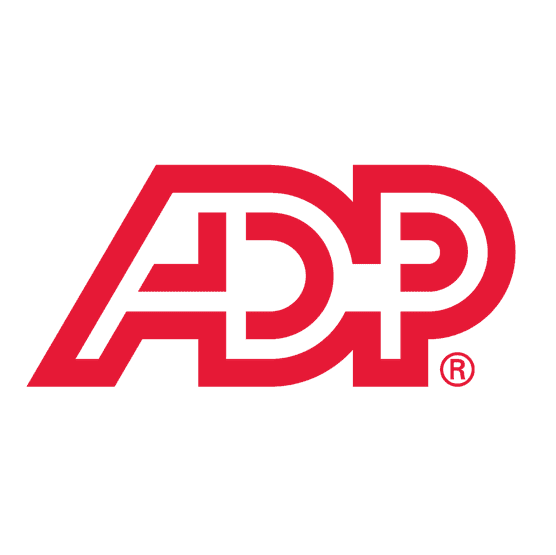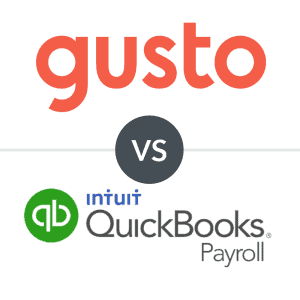PEOs are human resource companies that contract with small and mid-size businesses to manage HR services, payroll, employee benefits, and tax administration.
Whether you’re looking to save time or simply want to put your trust in the professionals, PEOs can handle a variety of a business’s operational tasks from running payroll to setting growth strategies. But what exactly is a PEO and should your business use one instead of traditional payroll software?
Keep reading for an in-depth explanation of PEOs and what they can do for your business.
What Is A PEO?
A professional employer organization (PEO) is a human resource company that enters a co-employment contract agreement with businesses and takes on the bulk of HR and employee management responsibilities.
PEOs can take over a business’s HR responsibilities, including running payroll, tax administration, benefits administration, and other talent management tasks.
How Does A PEO Work?
PEOs and businesses must enter a co-employment agreement, in which the business owner and PEO share the business’s legal and tax responsibilities. Generally, this agreement allows PEOs to perform employer-specific tasks, such as payroll and benefits administration, while leaving decision-making and leadership in the hands of business owners.
While the IRS does not formally recognize the concept of co-employment, the organization designates PEOs as payers, if they have entered an agreement with a business to:
- Recruit and hire employees
- Hire employees under the PEO’s company and lease them out to the businesses
- File employment tax returns under the PEO’s EIN
When a PEO has fulfilled these requirements, they are legally allowed to claim the title of employer and can legally perform employer-related functions for your business, including running payroll, paying taxes, administering benefits, and more.
Tasks PEOs Can Handle
Although PEO responsibilities vary by contract, PEOs can handle the bulk of a business’s payroll and HR tasks, including compliance support, payroll, employee benefits, and much more. PEOs can take on the following tasks for your business:
PEOs Can Handle Businesses’ Payroll
Whether your employees are full-time, part-time, tipped workers, or 1099 contractors, a PEO can make sure everyone gets paid on time. This can include more complicated functions, such as garnishments and deductions. PEOs operate using payroll best practices and pass that service onto your business.
PEOs Can Manage Benefits Administration For Employees
PEOs can acquire better employee benefits than you’d get on your own, including medical, dental, vision, retirement plans, life insurance, and workers’ compensation. They can also handle the administration of these benefits, ranging from onboarding to processing claims.
- PEOs Can Help Businesses Stay Compliant: Staying up to date on compliance and HR regulations can be difficult. PEOs are able to offer guidance and cover the bases for payroll taxes, IRS reports, and other requirements.
- PEOs Can Establish Or Grow Businesses’ HR Resources Library: PEOs can customize resources like employee handbooks and written job descriptions for small businesses.
- PEOs Can Aid In Businesses’ Strategic Planning: Working with a PEO can help revise a business’s mission statement, vision, and organizational culture.
- PEOs Can Perform Recruitment & Screening Tasks: Between posting jobs, vetting candidates, and onboarding new hires, a PEO can handle the details so business owners can focus on choosing from a selection of top candidates.
- PEOs Can Help Businesses Create Safety Strategies: Businesses that involve hazards can consult with a PEO to identify ways to reduce risk. As a co-employer, a PEO shares liability with a small business owner.
Tasks PEOs Can’t Handle
While PEOs can do a lot for your business, they don’t completely take over your HR operation or handle any decision-making for your business.
Here’s a look at the tasks PEOs can’t handle for your business:
- PEOs Can’t Run Payroll Without Help: While PEOs can run payroll for your business, they still require you to provide relevant payroll information before each payroll run, including employee hours, vacation time, bonuses, and more.
- PEOs Can’t Set & Enforce Employee Policies: Although PEOs maintain status as co-employer, your company’s leadership is still in your hands. PEOs can help you form employee policies, but it’s up to you to set and enforce them.
- PEOs Can’t Handle Business Accounting: PEOs do handle your business’s payroll tax obligations, but they don’t perform any other accounting duties for your business.
- PEOs Don’t Make Hiring Decisions: PEOs can help screen applicants and boost your recruitment efforts, but they do not make the final decision on hiring or firing for your business. In fact, they are not involved in the decision-making process.
The Advantages Of A PEO
There are several benefits to take advantage of when using a PEO for your business.
The advantages of a PEO include:
- PEOs can help businesses increase efficiency by passing administrative duties to experienced professionals.
- Leveraging a PEO’s internal HR staff can help businesses avoid having to hire or grow an HR team.
- PEOs can help businesses save money on competitive employee benefits packages.
- PEOs provide businesses with professional tax guidance and payroll oversight to reduce financial risk.
- Businesses can improve employee retention through PEO’s benefits packages and stronger HR support.
The Disadvantages Of A PEO
Although a PEO can be a valuable asset to your business, there are several disadvantages of PEOs to consider when making your final decision.
The disadvantages of PEOs include:
- PEOs may not agree to work with businesses with fewer than 10 employees.
- A PEO contract’s proposed services may not completely align with a business’s specific needs.
- PEOs can increase a business’s legal vulnerabilities by reducing protection against being sued.
- PEOs may limit employers’ options when it comes to benefits packages.
- PEOs are generally more expensive than traditional payroll software.
- The process of switching back to a traditional payroll solution from a PEO may require businesses to re-establish their EINs and may cause tax penalties.
What Types Of Businesses Benefit From A PEO?
At a fundamental level, PEOs help businesses simplify their payroll and HR operations by taking on the bulk of those administrative tasks.
As a result, virtually any business needing those services can benefit from a PEO. That’s why you’ll find that the following businesses may benefit from a PEO:
- Retail stores
- Legal firms
- Healthcare offices
- Financial businesses
- Insurance businesses
- Manufacturing companies
- Trade businesses
- Advertising and marketing companies
- Real estate businesses
- Construction companies
This list is a non-exhaustive list, so if your business’s type falls outside of this list, don’t worry about it. Your business may still benefit from the services of a PEO, regardless of industry.
How Much Does A PEO Cost?
PEO pricing varies, with many of the top PEOs on the market such as ADP, Paychex, TriNet, and Oasis using a custom pricing model depending on your business’s size and needs. JustWorks does publish its pricing package options ranging from $59-$99/month per employee.
Additionally, many PEOs seem to require customers to sign a long-term contract rather than offering month-to-month subscription services.
What Is A CPEO?
A CPEO is a Certified Professional Employer Organization, which indicates that a PEO has undergone the IRS’s certification process established under the Tax Increase Prevention Act of 2014. The certification process requires the PEOs to post bonds of up to $1 million to back annual tax payments and agree to pay federal payroll taxes on behalf of their clients.
Otherwise, CPEO clients are allowed to claim tax credits (regardless of PEO relationship status). Moreover, businesses choosing to work with a CPEO over a PEO don’t need to worry about paying extra taxes as a result of the wage-base restart when they join a PEO mid-year or get out of a co-employment contract.
The IRS publishes a list of CPEOs, including those entities whose certification has been revoked or suspended. Be sure to check the IRS’s CPEO Public Listings to determine whether any PEO your business is considering has been certified.
Is A PEO Right For Your Small Business?
Whether a PEO is right for your small business depends on your business’s unique HR and payroll needs. Moreover, since the services of payroll software and PEOs have a lot of overlap, it can be challenging for business owners to choose between the two options.
Fortunately, there are specific instances where a PEO or payroll software would be a better option for your business. Here’s a look at some common situations in which a business should choose a PEO vs payroll software.
Choose A PEO If…
- Your business is experiencing high turnover levels that are becoming too challenging to manage.
- Your business has complex hiring needs, including employment screening and hiring international employees.
- Your small business needs a dedicated HR service without the budget to pay a full-time HR employee.
- You’re starting a business and want professionals to take on essential HR, and payroll tasks that you cannot effectively or efficiently do alone.
- Your business has struggled to adhere to HR and payroll compliance regulations.
Choose Traditional Payroll Software If…
- Your business is spending too much time running payroll manually.
- Your business has an established HR team but needs to standardize and streamline operations.
- Your business has simple payroll needs and little to no complex hiring needs.
- You do not want to relinquish the status of sole employer for your business.
- You want customizable options to fill in HR and payroll operational gaps for your business.
- Your business has never had problems with compliance or getting taxes paid on time.
The Bottom Line On PEOs
PEOs benefit businesses by acting as a co-employer who takes on the responsibility of managing payroll and HR tasks for your business without taking on a leadership or decision-making role. In essence, PEOs allow businesses to take advantage of the expertise and reliability of professional HR teams without having to hire one themselves.
While PEOs can benefit many businesses, they aren’t always the best choice. For businesses that are just looking to simplify the process of running payroll and expand their HR operation, investing in one of the top payroll software for businesses might be a better, less expensive, and more flexible option compared to PEOs.
If you’ve decided that a PEO is the right choice for your business, you can begin the selection process with our list of the best PEO companies. In this guide, we break down the best PEO companies, PEO pricing, and the key features of each PEO, so that you can choose the right one for your business.
FAQs About PEOs
What is the difference between a PEO and a payroll company?
The primary difference between a PEO and a payroll company is that PEOs serve as co-employers in a business, with the business’s employees working under the PEO’s federal employer identification number (FEIN).
Similar to PEOs, payroll companies can help businesses pay employees, build benefits packages, and provide access to licensed HR professionals, but payroll software doesn’t take on the role of co-employer for your business.
What is PEO insurance?
PEO insurance is traditional insurance and benefits offered to businesses at a lower price because the PEO can leverage the buying power of its many clients. As a result, small businesses may benefit from lower insurance prices and improved benefits packages when using a PEO.












